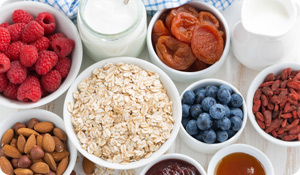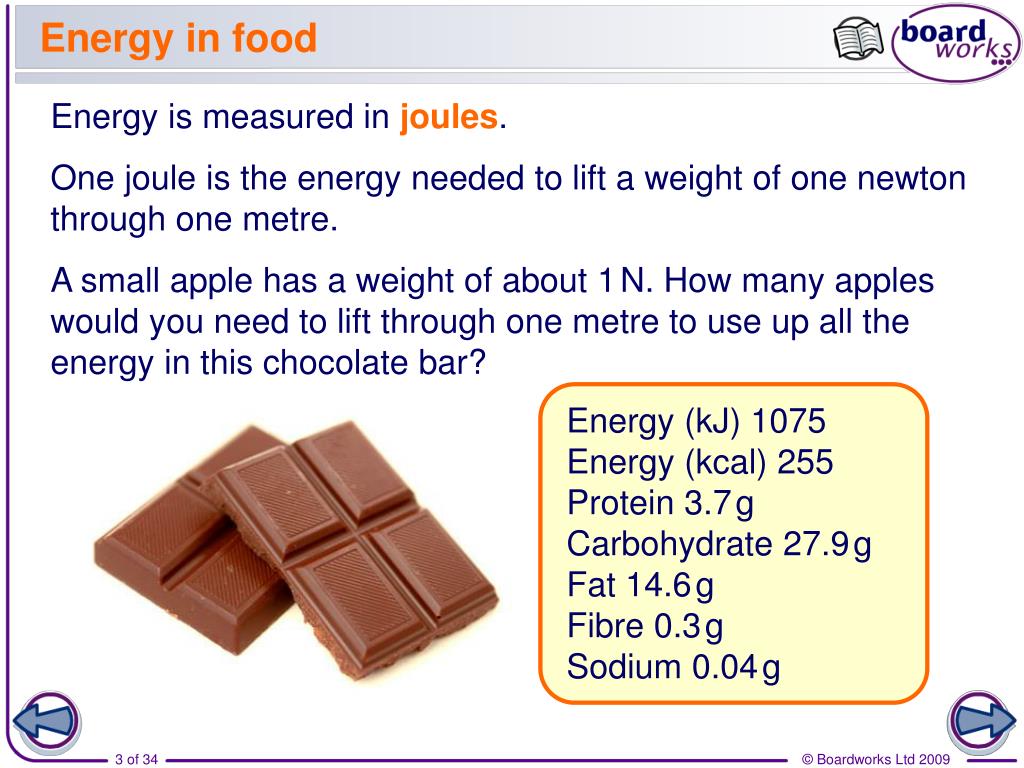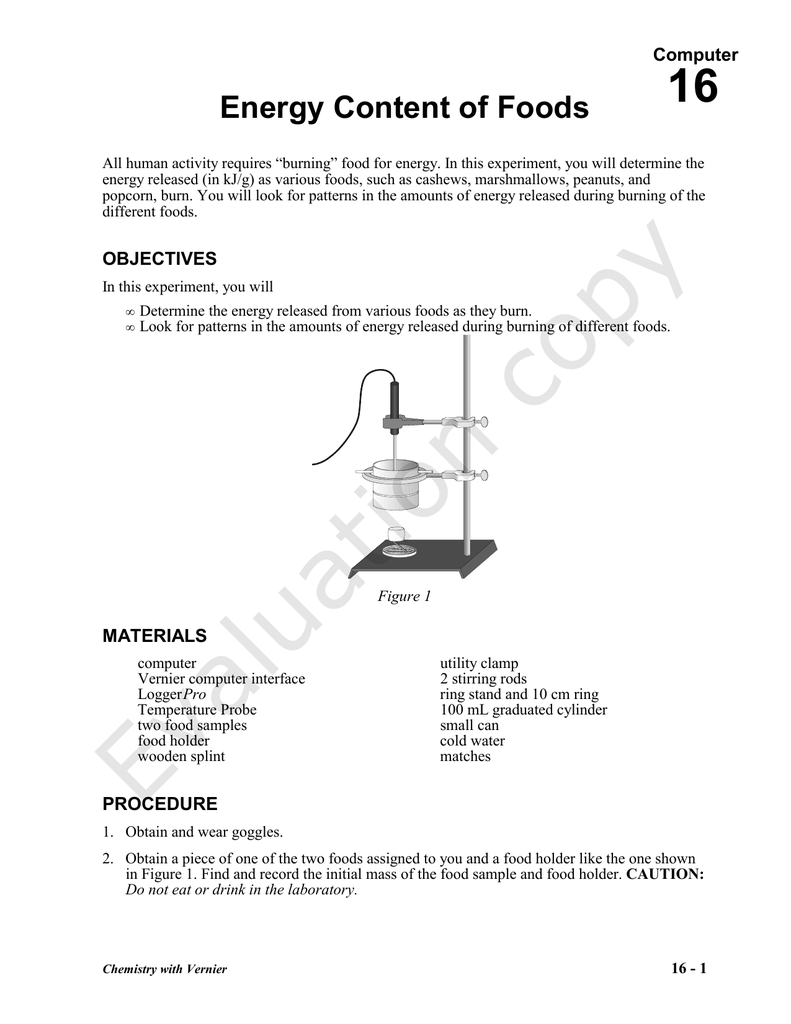40 how do we get energy from food
How Your Body Creates Energy from Dietary Fat - dummies Your body creates energy from the fats you include in your diet. Although dietary fat has more energy (calories) per gram than proteins and carbohydrates do, your body has a more difficult time pulling the energy out of fatty foods. Because fat is digested more slowly than proteins and carbohydrates, you feel fuller (a condition called satiety) longer after eating high-fat food. Imagine ... How to calculate the Energy available from foods To calculate the energy available from a food, multiply the number of grams of carbohydrate, protein, and fat by 4,4, and 9, respectively. Then add the results together. For example, 1 slice of bread with a tablespoon of peanut butter on it contains 16 grams carbohydrate, 7 grams protein, and 9 grams fat : 16g carbohydrate x 4 kcal/g = 64 kca l.
How We Get Energy from Food | A Natural Process in Body How food is converted to energy the procedure in detail. 1) The food we eat consists of carbohydrates, proteins, fats, etc. This gets digested in the gut to glucose, amino acids, and fatty acids, respectively. These biomolecules get absorbed into the bloodstream from the gut. 2) This glucose in the blood is absorbed into every tissue and the ...

How do we get energy from food
Eating to boost energy - Harvard Health Eating to boost energy. July 26, 2011. The tried-and-true advice for healthful eating also applies to keeping your energy level high: eat a balanced diet that includes a variety of unrefined carbohydrates, proteins, and fats, with an emphasis on vegetables, whole grains, and healthy oils. Taking a daily multivitamin will ensure that you get the ... 15 Ways to Get More Energy - wikiHow Sleep deprivation is a major cause of low energy levels. Pick a bedtime that allows you to get at least 7 hours of sleep. Go to bed at the same time every night and get up at the same time every morning to create a healthy sleep routine that makes you feel more energized during the day. Sleep in a cool room, such as a room with the air conditioning turned on, if possible. Can Certain Foods Give You More Energy? - Healthline Glycemic index. Another way to determine how carbs may affect your energy levels is through their glycemic index, which tells you how a carb-containing food may affect your blood sugar levels ( 3 ...
How do we get energy from food. How Our Bodies Turn Food into Energy - I Spy Physiology Blog Cells have three ways to convert food into ATP: glycolysis, the Krebs cycle and oxidative phosphorylation. Each pathway processes specific nutrient groups: Glycolysis only uses carbohydrates, while the Krebs cycle and oxidative phosphorylation can use all three. In each pathway, the nutrient is broken down in a multi-step process by specialized ... Energy Use In Food Production | Choose Energy® We use a whole lot of energy to produce our food. The U.S. food system uses a massive amount of energy from start to finish. In 2018, the U.S. consumed 101.1 quadrillion Btu (British thermal units) of energy. The food system makes up 10 percent of that total, landing it at about 10.11 quadrillion Btu. That number might not mean much at first ... Energy in Food and Nutrition | Chemistry for Non-Majors The energy in the food that we it is measured in units of kilocalories or Calories. The Calorie (Cal, with an uppercase C) used to measure the nutrition in food is actually 1000 calories (cal) (with a lowercase c) or 1 kilocalorie (kcal). While the Calorie unit is used widely in the U.S., the kilojoule (kJ) is in widespread use internationally. How our bodies turn food into energy | Kaiser Permanente This energy comes from the food we eat. Our bodies digest the food we eat by mixing it with fluids (acids and enzymes) in the stomach. When the stomach digests food, the carbohydrate (sugars and starches) in the food breaks down into another type of sugar, called glucose. The stomach and small intestines absorb the glucose and then release it ...
How We Release Energy From The Foods We Eat - ExpertsColumn.com The cells in our body uses oxygen to get energy from the food. In order to keep the human body warm, the cells use this energy. When the human body gets cold our cells releases extra energy and makes the body warm. The cells make use of this energy in order for them to grow, in order for then to divide, in order for them to fix damage and to do ... Food Energy - an overview | ScienceDirect Topics Energy. Food energy is defined as the energy released from carbohydrates, fats, proteins, and other organic compounds. When the three major calorigenic nutrients (carbohydrates, fats, and proteins) in a food are burnt entirely with sufficient amounts of oxygen, it releases energy or food calories that are expressed in kilojoules (kJ) or ... How Do Humans Get Energy? - Reference.com Humans get energy by releasing the stored chemical energy in the foods they eat. Foods are made up of different types of macromolecules, each of which holds a different amount of energy. When humans break down food to power their biological functions, it is called catabolic metabolism. Humans primarily engage in a metabolic pathway called ... Food Gives us Energy |What kinds of Food do we Eat at Home?|Vegetables ... Food helps us to grow. It makes us strong and healthy. We get our food from both animals and plants. Some people eat only food from plants. Others eat both kinds of food. We eat different kinds of food like rice, bread, chapattis, pulses, vegetables, fruits, etc. . Wheat and rice are the seeds of plants.
Energy - Food A Fact Of Life Energy is: used by normal body functions, such as breathing, blinking and eating, and undertaking different types of activity (out). If we have energy balance (consuming and using the same amount of energy), our weight will stay the same. Discuss with the class problems with being over- and under- weight. Energy in food (kilojoules and calories) - Better Health Channel Summary. A kilojoule (or Calorie) is a unit of energy. In Australia, we use kilojoules (kJ) to measure how much energy people get from consuming a food or drink. The kilojoule content of foods depends on the amount of carbohydrates, fats and proteins present in the food, and the portion size. Foods that are high in fats, added sugars or alcohol ... How Cells Obtain Energy from Food - Molecular Biology of the Cell ... As we have just seen, cells require a constant supply of energy to generate and maintain the biological order that keeps them alive. This energy is derived from the chemical bond energy in food molecules, which thereby serve as fuel for cells.. Sugars are particularly important fuel molecules, and they are oxidized in small steps to carbon dioxide (CO 2) and water (Figure 2-69). 30 Foods That Give You All-Day Energy — Eat This Not That Judy Barbe, RDN, likes to combine protein and fiber to feel fuller, longer. She enjoys her whole wheat toast topped with ricotta and jam or sliced fruit. "Ricotta has 14 grams protein in 1/2 cup," she says. Plus, the fiber from the whole wheat bread fills you up and keeps your blood sugar stable. 11.
where does energy in food come from - Lisbdnet.com food come fromFAQwhere does energy food come fromadminSend emailDecember 18, 2021 minutes read You are watching where does energy food come from Lisbdnet.comContents1 Where Does Energy Food Come From Where does energy...
Unlocking the energy in foods — Science Learning Hub Counting the energy of foods. The standard energy unit is the joule. It is defined in the following way: 4.18 joules is the energy needed to heat 1g of water by 1°C. The joule is a small unit for everyday purposes, so in food chemistry, the kilojoule is the preferred unit (1000J = 1kJ).
What is food energy? - BBC Bitesize Food stores energy. Eating transfers the stored energy from the food to the animal that eats it. The energy keeps the animal alive, and allows it to carry out its activities. Different animals ...
where does the energy of food originally come from - Top Tips group btn .search submit, .navbar default .navbar nav .current menu item after, .widget .widget title after, .comment form .form submit input type submit .calendar ...
How Does the Food We Eat Actually Give Us Energy? The Bottom Line. The food we eat provides energy that give our bodies fuel to perform all functions from the most basic like breathing to more complicated activities. We need a minimum amount of calories from food to sustain basic metabolic functions and more to carry out physical activities. The more active we are, the more food we need.
Energy in food - BIOLOGY JUNCTION When we eat food, our bodies convert the stored energy, known as Calories, to chemical energy, thereby allowing us to do work. A calorie is the amount of heat (energy) required to raise the temperature of 1 gram (g) of water 1 degree Celsius (°C). The density of water is 1 gram per milliliter (1g/ml) therefore 1 g of water is equal to 1 ml of ...
23 Foods That Give You An Energy Boost Instantly - Lifehack Salmon, tuna, and sardines (a.k.a "brain food") are great energizing lunch or dinner options. They are a healthy source of protein and vitamin B, which plays a crucial part in converting food into energy. You will also find these types of fish high in omega-3 fatty acids. Studies show that omega-3s help reduce inflammation - a major ...
20 Foods That Give You All-Day Energy - LIVESTRONG.COM For more staying power, Gorin likes to add nut butter for healthy fats and protein as well as fruit for more fiber. 11. Blueberries. Fruit is one of the top foods that give you energy because they provide natural sugar and fiber, which slows down the blood sugar response for more lasting energy.
How does the body produce energy? - Metabolics Energy comes from the three main nutrients carbohydrates, protein, and fats, with carbohydrates being the most important energy source. In cases where carbohydrates have been depleted, the body can utilise protein and fats for energy. Your metabolism is the chemical reactions in the body's cells that change this food into energy.
9 tips to boost your energy — naturally - Harvard Health 7. Use caffeine to your advantage. Caffeine does help increase alertness, so having a cup of coffee can help sharpen your mind. But to get the energizing effects of caffeine, you have to use it judiciously. It can cause insomnia, especially when consumed in large amounts or after 2 p.m. 8. Limit alcohol.
Can Certain Foods Give You More Energy? - Healthline Glycemic index. Another way to determine how carbs may affect your energy levels is through their glycemic index, which tells you how a carb-containing food may affect your blood sugar levels ( 3 ...
15 Ways to Get More Energy - wikiHow Sleep deprivation is a major cause of low energy levels. Pick a bedtime that allows you to get at least 7 hours of sleep. Go to bed at the same time every night and get up at the same time every morning to create a healthy sleep routine that makes you feel more energized during the day. Sleep in a cool room, such as a room with the air conditioning turned on, if possible.
Eating to boost energy - Harvard Health Eating to boost energy. July 26, 2011. The tried-and-true advice for healthful eating also applies to keeping your energy level high: eat a balanced diet that includes a variety of unrefined carbohydrates, proteins, and fats, with an emphasis on vegetables, whole grains, and healthy oils. Taking a daily multivitamin will ensure that you get the ...












0 Response to "40 how do we get energy from food"
Post a Comment